Ecovillage and Permaculture
Ecovillage and Permaculture Design Initiatives
“Ecovillage is a human-scale full-featured settlement which human activities are harmlessly integrated into the natural world in a way that is supportive of healthy human development, and can be successfully continued into the indefinite future.”
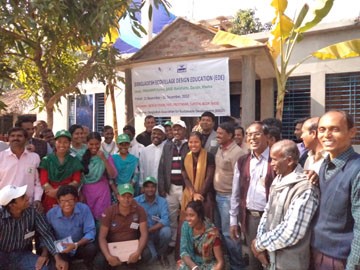
Following the above definition written by Robert Gilman, BASD started Ecovillage design works in Bangladesh from 2003. BASD is greatly concerned about the environment development, nature care, climate change adaptation and mitigation, developing socio-economic development of the community with a special attention to poor community. For strengthening the initiatives, BASD started forming and developing the small but interested communities at Prottashabon (Srimongal, Moulovi Bazar), Piprashoir (Kaligonj, Gazipur), Komlapur (Savar, Dhaka), Andhermanic (Dacope, Khulna), Machmara (Mongla, Bagerhat) for transforming into Ecovillages from traditional villages. Gradually this work expanded in the whole country and we see in 2023 it is being developing in more than 2,500 villages by BASD, World Vision Bangladesh, North South University and many other national and international NGOs, Institutions and donors.
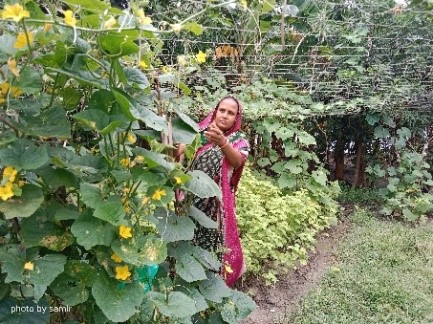
BASD is presently directly developing and transforming 24 traditional villages into Ecovillages in Dacope and Mongla. Besides, BASD was previously and presently continuing developing and transforming 94 traditional villages into Ecovillages. Additionally, BASD’s partner NGO, World Vision Bangladesh has continued transforming traditional villages into Ecovillages in different districts in the country. They aimed to transform 2,500 traditional villages into Ecovillages within next 5 years. Many other NGOs and donors are also thinking and planning for adding this Ecovillage program in their programs in the coming days.
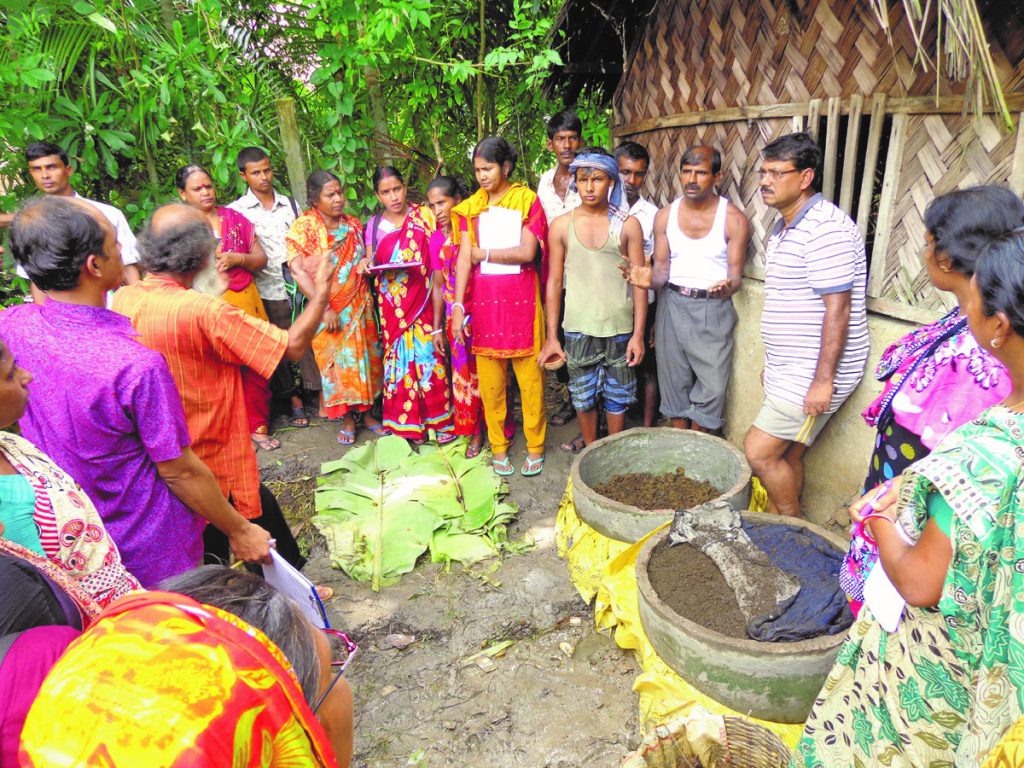
New Initiative: BASD started giving technical assistance and support to World Vision Bangladesh from December, 2020 for capacity building of Staff and Volunteers for starting Ecovillages and Permaculutre activities in the country.
Research Works: BASD and North South University jointly started research works on climate resilience, environment development, food security, livelihood and empowerment of women in South Bengal among the Ecovillage and Permaculture practitioners of Dacope (Khulna) and Mongla (Bagerhat) from December, 2020.
C-MAN: Climate Change Mitigation and Adaptation Network (C-MAN) is formed with 23 faith based NGOs and North South University in 2009. Now its membership is opened for the interested NGOs, Institutions and the Donor Organizations. working in Bangladesh.
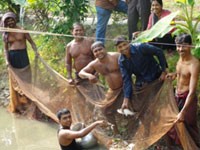
Permaculture Design:
“Permaculture, originally ‘Permanent Agriculture’, is often viewed as a set of gardening techniques, but it has in fact developed into a whole design philosophy, and for some people a philosophy for life”. (Emma Chapman). Its central theme is the creation of human systems which provide for human needs, but using many natural elements and drawing inspiration from natural ecosystems. Its goals and priorities coincide with what many people see as the core requirements for sustainability. Permaculture tackles how to grow food, build houses and create communities, and minimize environmental impact at the same time. Its principles are being constantly developed and refined by people throughout the world in very different climates and cultural circumstances.
Following the writings and inspiration of his words and thinking, BASD is continuing teaching and preaching Permaculture design works, gardening and various techniques from 2003 in different parts of the country.
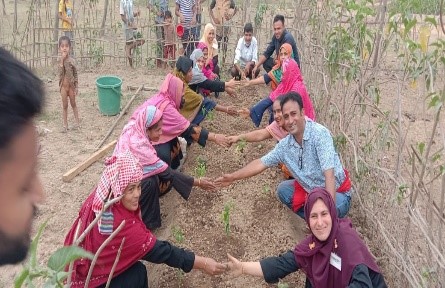
By this time BASD, World Vision Bangladesh, PARI, Faith in Action, Caritas Bangladesh, Baptist Aid and many other organizations has already trained more than 2,500 farmers, village leaders and women, refugees and more than 50,000 people continued practicing Permaculture gardening in different parts of the country as well as in the Refugee Camps.
We see different kinds of Permaculture gardens and practices in the country (raised, floating, sack, flat, climbing, key …..), different kinds of composting (round, liquid, dig, quick, green….), different kinds of pesticides (herbal, natural, liquid…..), different kinds waste management (composting, hard waste, eco bricks……), local seed cultivation and preservation, green house, eco house, permaculture house and lots of other Permaculture practices for healthy and peaceful living, economic development, social development and many other related reasons for better living of human beings, domestic animals, plants and insects.
